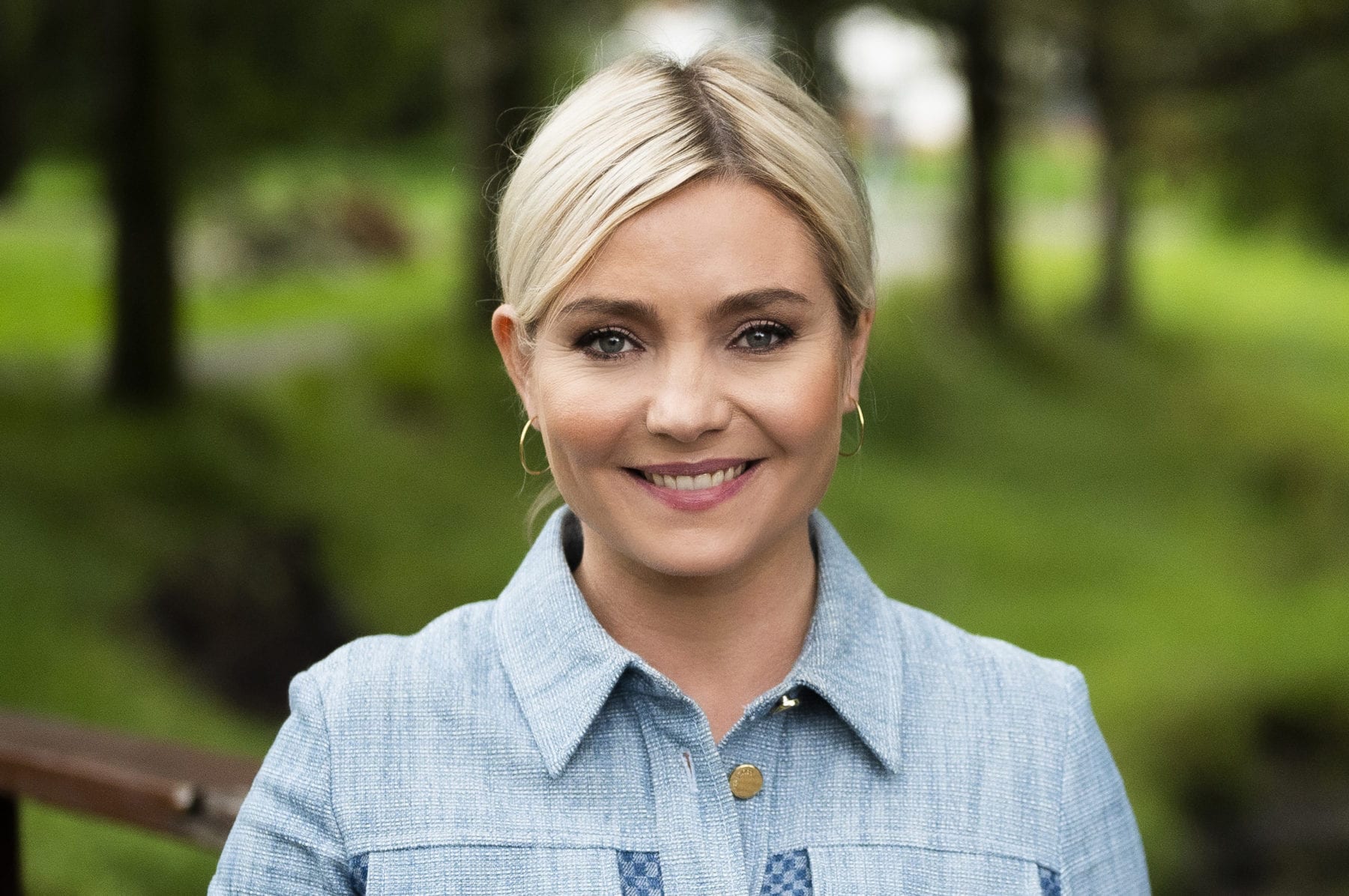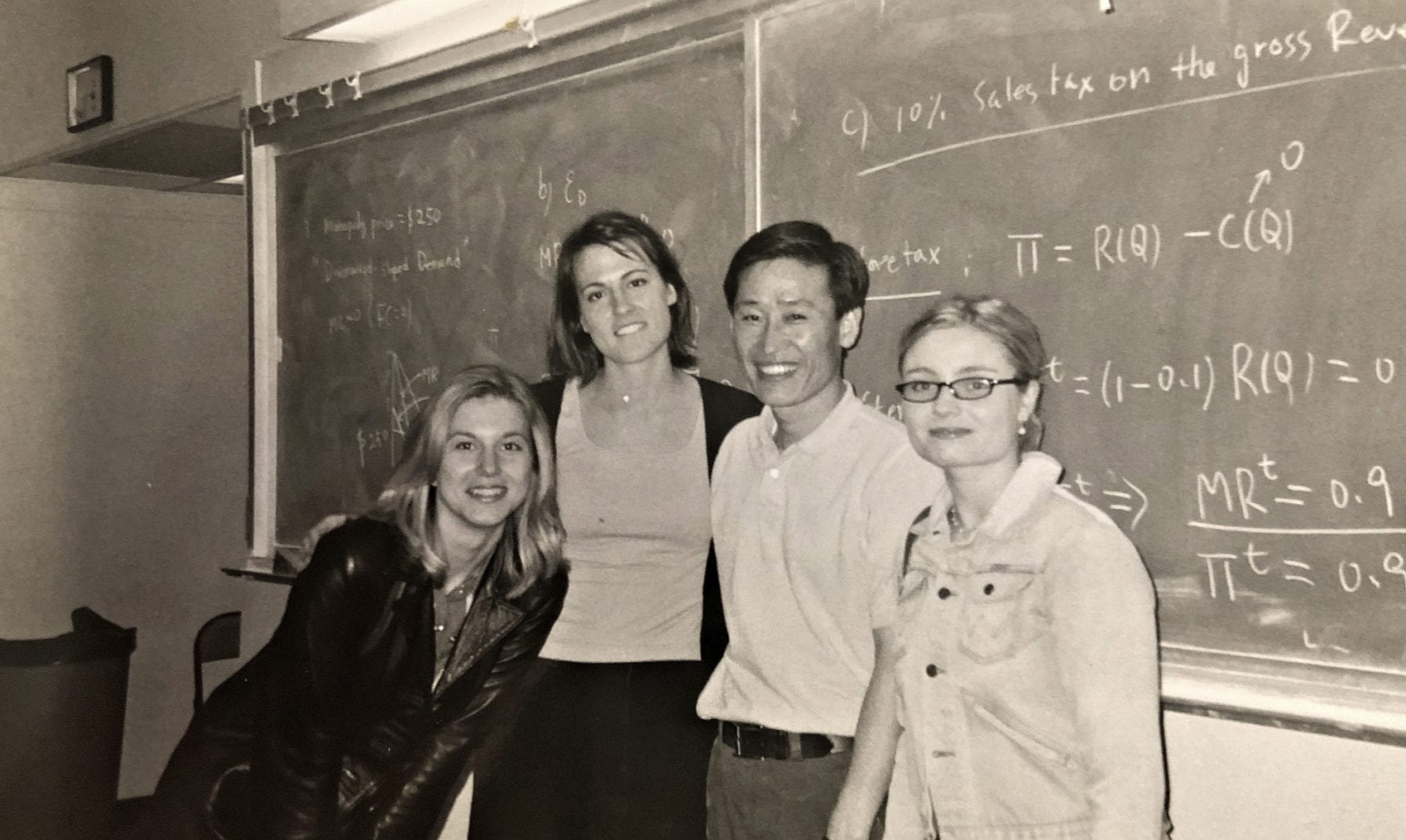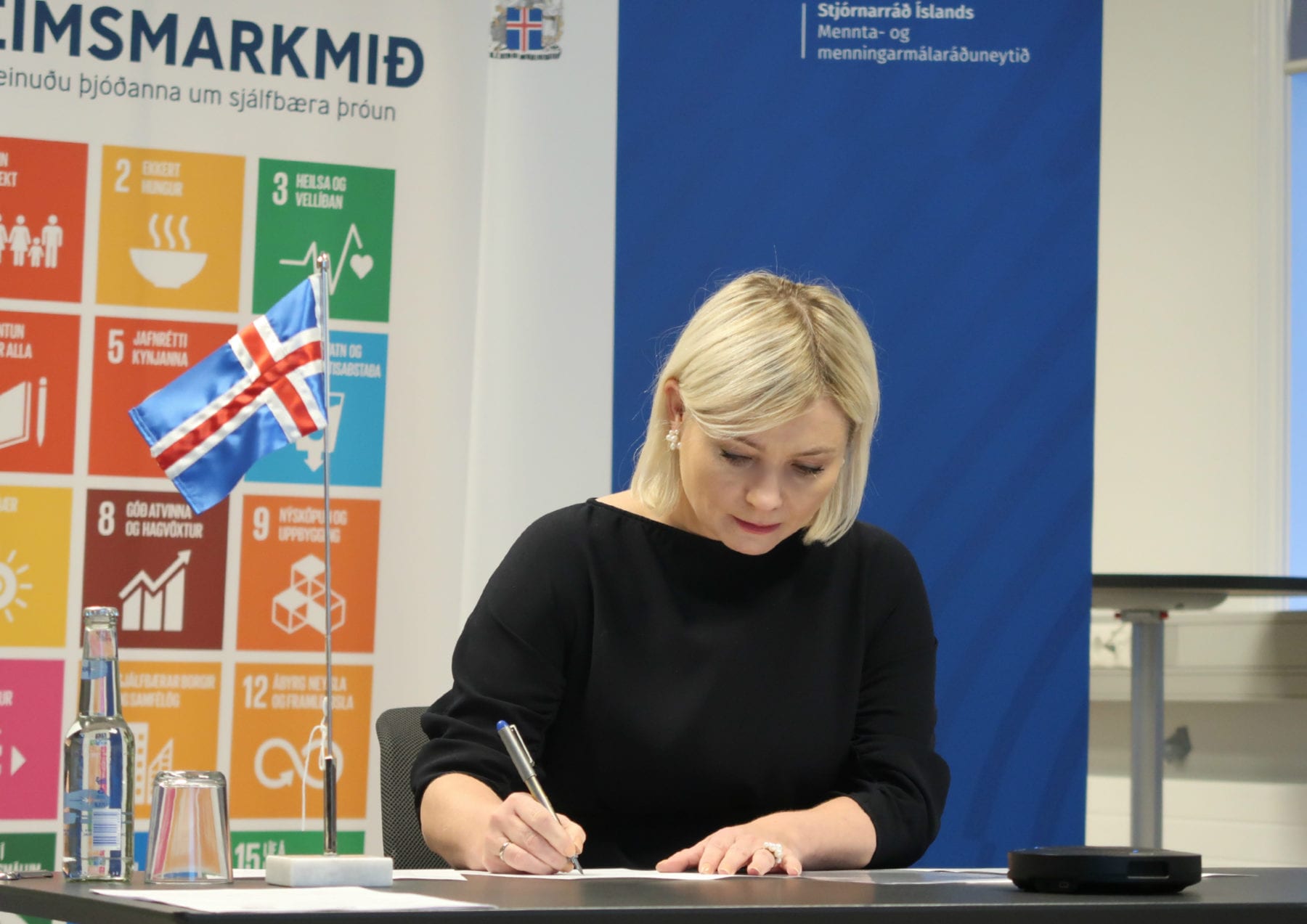The Future of Fulbright Iceland and the Importance of International Cooperation

Minister of Education, Lilja Alfreðsdóttir, on her inspiring time at Columbia University, the future of Fulbright Iceland and the importance of international cooperation
Lilja Alfredsdottir has been an influential voice in Icelandic politics. She has served as an advisor for various government bodies and is currently the Vice-Chair of her political party, The Progressive Party. In 2016 she became the Minister for Foreign Affairs, only the third woman to do so, and in 2017 Minister of Education, Science and Culture where she still serves. Ms. Alfredsdottir holds a master’s degree in International Economic Policy from Columbia University and received a Fulbright grant in 1999 during her studies. She is a patron of Fulbright Iceland, serving as Honorary Co-Chair of the Board of Directors, and has participated in numerous commission events.
What did it mean for you to get the Fulbright support and be a Fulbright fellow?
It meant the world. Without a doubt it gives you a competitive advantage in terms of getting accepted in the best universities, like Columbia, because everyone knows that there’s a certain selection process in your home country. Also, the Fulbright selection process sharpens you; you need to be interviewed, you need to focus, and you need to do this work ahead of time. I had decided to aim for Columbia for a long time, so being accepted by Fulbright gives you greater confidence which is so vital when you are studying abroad. One of the best preparatory years I’ve had were the years in the run-up of me receiving Fulbright and being accepted into Columbia.
Could you tell us a little about your time in NY? How did it influence you, both professionally and personally?
It had a great influence. The education itself was based on group collaboration and in my study group I had a person from Peru, Estonia, and India. In 1999 New York was so vibrant, there was such a specific energy, and you had people from all over the world. Everyone was from somewhere so nobody ever asked me where I was from.
Being surrounded by all this diversity was inspiring to me and I’m still in contact with almost all of my fellow students. I feel that accepting the scholarship and deciding to study in Columbia is without a doubt one of the best decisions I’ve ever made.

Could you perhaps tell us an anecdote from your time in New York?
New York is full of stories. What comes to mind is that one of my favorite television shows at the time was Seinfeld, and I still love Seinfeld and still watch it. One spring evening, my husband and I were walking in Central Park and I hear someone laughing and I say to my husband; “Listen, listen, I know this laugh, I know who’s laughing”, and it’s Jerry Seinfeld. There he was playing with his child, and it felt like we were watching him just the way that he was in Seinfeld, and it was amazing to see. It felt like our world and the Seinfeld world were the same.
Were there any specific professors that impacted you?
Professor Robert Mundell and the author of the Euro was at Columbia at the time. I got inspired by his work on the Optimal Currency Union and wrote a paper on Iceland’s case. My conclusion was that Iceland did not fulfill the criteria of the Optimal Currency Union and therefore should not adopt the Euro. Professor Mundell received the Nobel Prize in economics for his theory. 20 years later my conclusion is still applicable and I still have this view. Another professor at the time was Richard Clarida, the current Vice Chair of the Board of Governors of the Federal Reserve System, who taught international economics, where I learned all about open and closed economies.
Now Fulbright in Iceland is on its 64. year of operation while Fulbright international celebrates its 75. year. Why is the Fulbright Program still important today?
Fulbright is important because it’s an encouragement to international cooperation and I think the best way to promote cooperation, peace and liberal values is through education. I’m a strong supporter of Fulbright and everything it stands for. Fulbright in Iceland has done an excellent job in recreating its mission, focusing on the Arctic and sustainability and global development. It’s such a correct emphasis. The liberal ideology that influenced the world after WWII when we were establishing Fulbright is important 75 years later, and is always important. Additionally, the Fulbright Commission in Iceland has been fortunate to have strong individuals that have had a clear vision both as regards higher education and how to enhance the relationship between Iceland and the US.

It is interesting to think about how Fulbright in Iceland has changed through the years. In its first decades it was mainly Icelanders going abroad to the US, but now we receive a number of academics every year to Iceland on a Fulbright grant. Especially the number of academics that teach or do their research in Iceland has increased. What is the value of that for the academic community of Iceland?
It is immense. We in Iceland have a competitive advantage in many fields within higher education and we definitely see academics coming from those fields, and our local academics establishing new connections in the U.S. and around the world. That helps innovation and helps scientific research. For example, our collaboration through the Arctic Science Ministerial meetings that were first established in Washington during the tenure of the previous Minister of Education, Illugi Gunnarsson, was then continued in Berlin and now we have a meeting coming up in Tokyo. So the international cooperation with Fulbright and within academia is of utmost importance.
At the same time the Commission has focused on specific fields of research that are important for Iceland and the US, like Arctic research and cyber-security. Can you think of any projects that you believe would be interesting for Fulbright to focus on in the future?
I think the focus that the leaders of Fulbright have had throughout the years are forward-looking and very applicable. But I think one of the things that would be important to focus on is Icelandic literature. We have a lot to offer with our Saga’s, which are unique, and our language, and how we are going to preserve it, how we are using technology with our tiny language, and how important this issue is. We are still leading in a lot of fields in literature and I think there is a lot more to explore there.
And then there is another field which is renewable energy, geothermal energy, where we are at the forefront. We have so much to contribute in regards to sustainability and fighting global warming in the Arctic region.
Why is it important for a small country like Iceland to send their academics abroad for education? And why should a part of them be sent to the US specifically?
It is important because the universities in the U.S. are at the forefront of research and development. There is an extensive research community and it’s so critical for Iceland to continue to nurture its Atlantic academic alliances like we have done throughout the years. The strength of the Icelandic universities is that they are very international and they should continue to move forward. Exchange programs are so essential because they affect students for the rest of their lives. I encourage everyone in higher education to look for new experiences and the U.S. is a great place to do that.
As the Minister of Education you have seen many challenges in these almost four years. If you had to choose one project that you are proud of in the field of education, what would it be and why?
Keeping our elementary schools open and securing education at the upper-secondary and university levels throughout the pandemic is a great achievement. As a welfare society that has invested in education we can now see the fruit of that emphasis, that we are investing in our youth. I’m extremely proud of everyone working in the education field; teachers, principals, students and all supporting staff.
Also, before the pandemic, we made significant changes to the Icelandic student loan fund resulting in a far lower level of indebtedness for graduating students than before, with a specific emphasis on students who study abroad. So these are true structural reforms that are looking towards the future.




